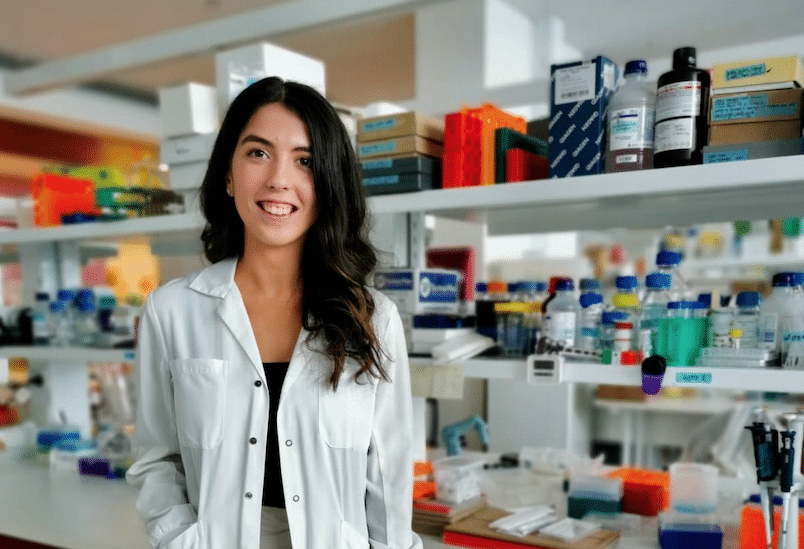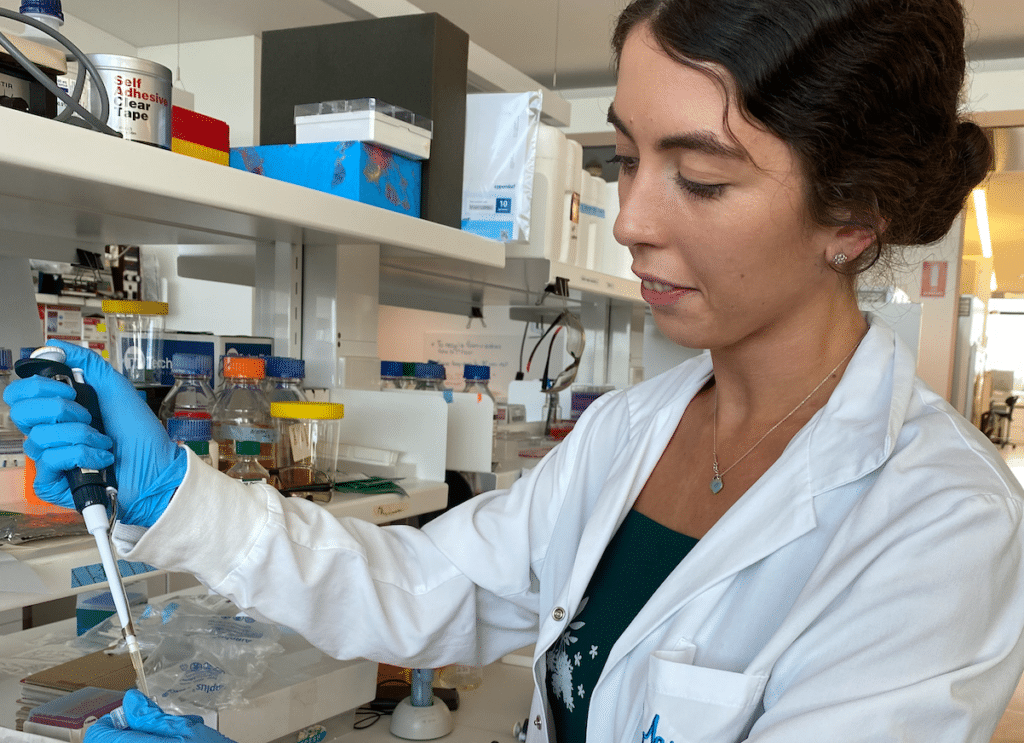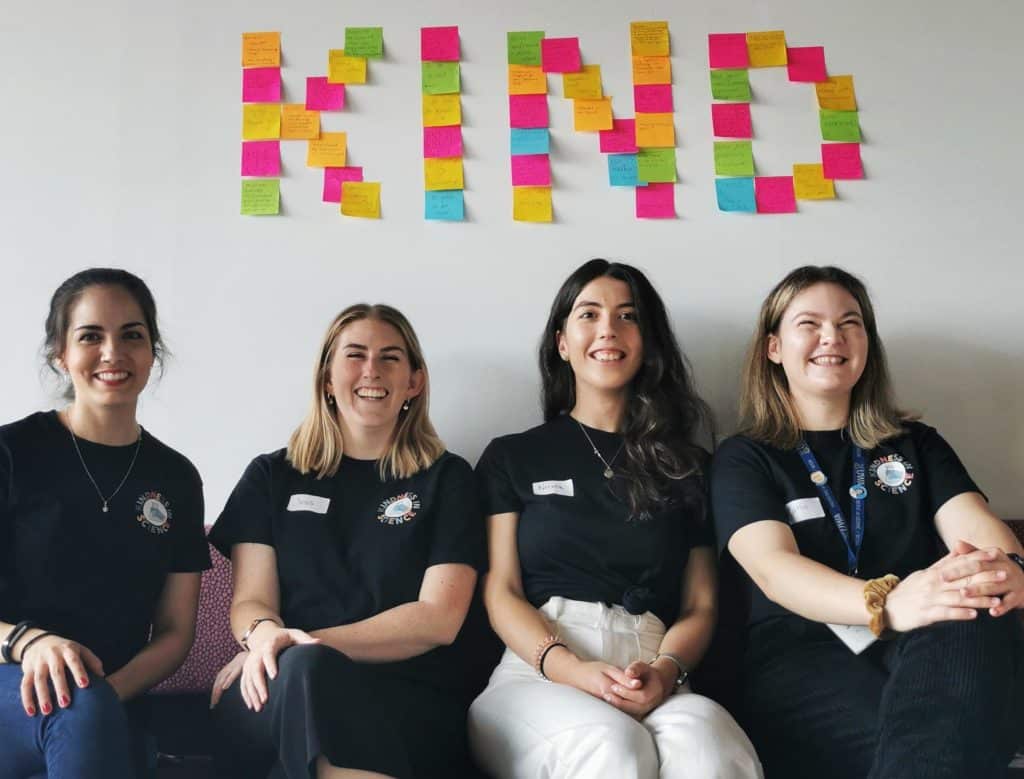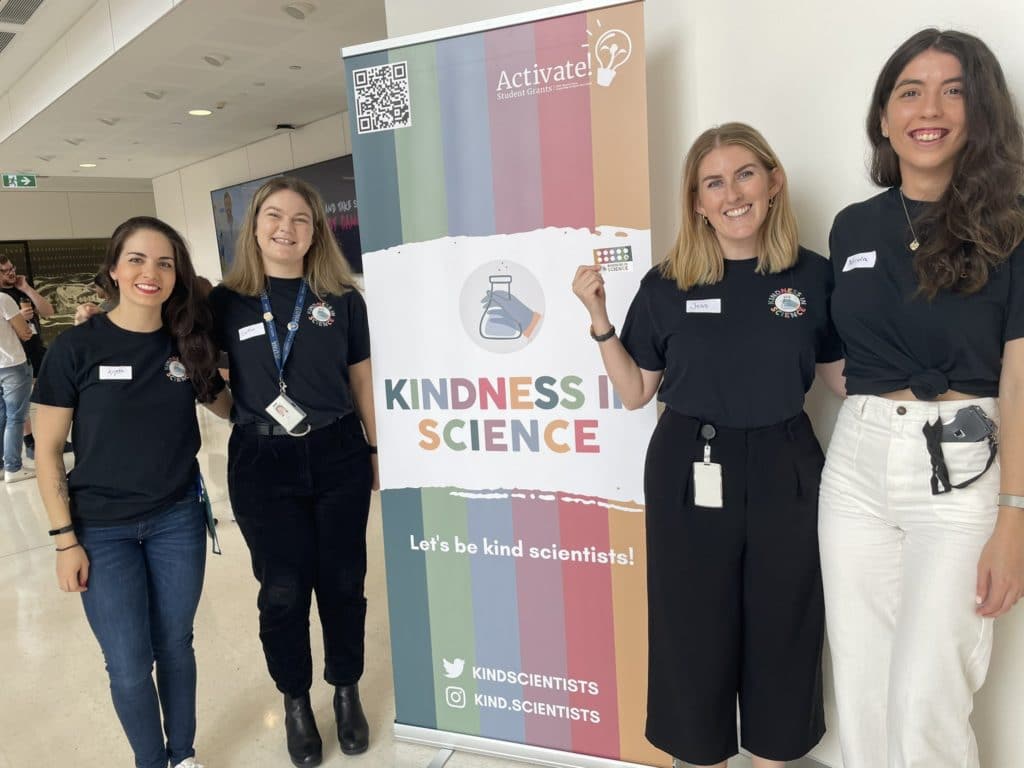Crushing Cancer Through Immunotherapy Research

Many of us have been touched by cancer, whether it be through a personal diagnosis or by a family member, friend, or colleague with the disease.
It is no surprise that cancer is a leading cause of death in Western Australia. It accounts for around 3 in every 10 deaths.
Looking to crush this statistic is Old Girl Nicola Principe (2014), who is currently completing her PhD in the field of Cancer Immunology at the National Centre for Asbestos Related Diseases (NCARD), University of Western Australia.
Nicola’s research is focused on improving a new cancer therapy called immunotherapy. This functions to boost your immune cells (in particular T cells), which essentially kill the cancer cells.
It is the first time many oncologists have associated the word ‘cure’ for cancer with immunotherapy. Patients with some cancers like metastatic melanoma have had complete regression of their cancer with immunotherapies, with a significantly improved survival benefit – from a couple of months to over five years.
“The problem we are facing now, is not all cancer patients achieve this amazing and strong effect with immunotherapy. Through my research, I am trying to unpack how immunotherapy works in thoracic cancers and see if we can boost the response of immunotherapy and improve patient outcomes”, said Nicola.
“To do this, I am studying the genes and proteins expressed by T cells from mesothelioma patients (an asbestos-causing lung cancer) who have undergone immunotherapy”, added Nicola.
“This means I am in the laboratory a lot, conducting experiments to look at different types of T cells, but also spending time using complex coding software and algorithms to analyse large amounts of genomic and protein data on my computer!”

But that’s not the only thing on Nicola’s horizon.
She is also a massive advocate for women and girls in science and hopes to contribute towards closing the gender gap in her field.
“There is still an imbalance of the representation of women, people of colour, and LGTBQ+ community members in science communities. For instance, research funding is largely rewarded to leading male scientists, rather than female, which has caused a lot of women to leave science”, explained Nicola.
“Women represent 60% of PhD students in Australia, but only 20% of scientists in leadership positions in universities. It is up to us to encourage more young women into STEM and supporting them properly is crucial”.

The aim of Kindness in Science is to support WA researchers and promote a kind scientific community built on diversity, respect and wellbeing, which would ultimately lead to happy scientists and therefore better scientific outcomes.
“We believe that the key areas we can become kinder as scientists include ourselves, each other, the environment and the community”, added Nicola.
“We have run workshops and panel discussions for early to late cancer researchers at the QEII Medical Centre in Nedlands”.
In her spare time (because she doesn’t already have enough on her plate!), Nicola also loves to teach science to high school students at the Biodiscovery Centre at Harry Perkins Institute of Medical Research.
You may have seen her face around campus as she has taught at Santa Maria a couple of times, as well as many other schools around WA!

We asked Nicola what advice she would give to girls considering a career in STEM. Here is what she had to say:
“Don’t be afraid to dream big, think creatively and rise to the challenge! The COVID pandemic has not only taught us that medical research is so important, but also that big thinkers and daring leaders are essential in our community… This includes women!”
“Even if you are not sure if a career in STEM would be good for you, don’t be afraid to give it a go! We are so fortunate in our society that there are so many opportunities out there to try”.
I think we can all agree that Nicola is truly a testament to the saying ‘If you want something done, go to someone who is busy!’
Congratulations on all you have achieved so far in your career, Nicola. You are a fantastic role model to our girls and inspire them to reach for the stars in whatever they choose to do.
We look forward to seeing you complete your PhD and wish you the best of luck in your future endeavours.

Combating The Attention Span Crisis In Our Students – Jennifer Oaten
It is no secret that attention spans have been steadily declining, especially among younger generations growing up immersed in digital technology. The average person’s attention span when using a digital device has plummeted from around two and a half minutes back in 2004 to just 47 seconds on average today – a dramatic 66% decrease over the past two decades.

With Laurissa Knowles From Valley Depths to Mountain Peaks (1993)
Laurissa Knowles (1993) has had an incredible career journey so far, from Santa Maria College Teacher to Celebrant and Councillor.

Elevating Spaces: Diana Ellis’ Signature Touch & Architecture Magic
What happens when you mix a love for art, travel, nature, and creativity with construction and building? You get the essence of Diana Ellis’ career!
- alumni, Collaboration, Featured, Learning4Life
Author: Santa Maria College
Santa Maria College is a vibrant girls school with a growing local presence and reputation. Our Mission is to educate young Mercy women who act with courage and compassion to enrich our world. Santa Maria College is located in Attadale in Western Australia, 16 km from the Perth CBD. We offer a Catholic education for girls in Years 5 – 12 and have 1300 students, including 152 boarders.






